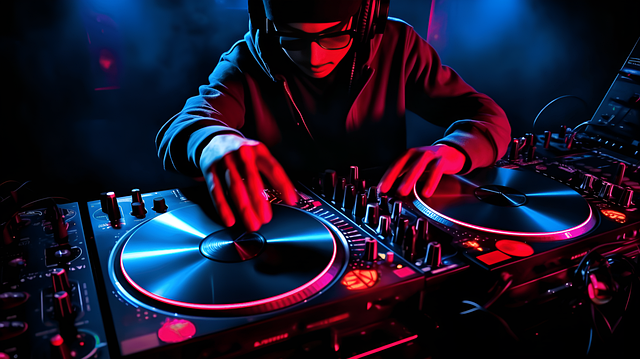Tour Dates | Shop | Contact
Afro House music, a genre that blends the rhythmic traditions of Africa with the energy and style of house music, has taken the global dance music scene by storm. But who were the pioneers behind this genre, and how did it evolve into the dynamic style we know today? Let’s take a closer look at the origins of Afro House music and the key figures who played a pivotal role in shaping its sound.
The Origins of Afro House Music
Afro House music finds its roots in South Africa, where it emerged as a fusion of traditional African rhythms and modern house music. The genre began to take shape in the early 2000s when South African DJs and producers started blending the deep, percussive sounds of African music with the global appeal of house music. This fusion was not just a new sound, but a new way of experiencing house music—incorporating African cultural influences while retaining the uplifting and rhythmic qualities of house music.
The creation of Afro House was influenced by the already thriving South African music scene, including genres like Kwaito, Gqom, and the globally recognized Afrobeats. As house music started to gain popularity worldwide, the addition of African elements created a unique niche within the broader house genre, giving birth to Afro House.
Key Pioneers of Afro House Music
While many artists have contributed to the development of Afro House, a few stand out as true pioneers in the genre.
Black Coffee
No discussion about Afro House would be complete without mentioning Black Coffee. One of South Africa’s most internationally renowned DJs and producers, Black Coffee is often credited with bringing Afro House to a global audience. His innovative sound blends soulful house elements with African rhythms, creating a distinct style that resonates with listeners worldwide. Black Coffee’s ability to mix deep house, jazz, and African influences has made him one of the genre’s most influential figures.
His rise to fame has helped establish Afro House as a significant subgenre of house music. Tracks like “Supernova” and “Drive” have become anthems within the genre, solidifying his position as a leader in the Afro House movement.
Culoe De Song
Another important figure in the Afro House scene is Culoe De Song, a South African DJ and producer known for his complex, deep, and melodic style. Culoe De Song’s music blends Afrobeat rhythms with smooth house beats, creating an atmospheric sound that captivates listeners. His album “Supernova” (2014) was widely praised for its ability to merge Afrocentric melodies with global house sensibilities.
Culoe De Song’s contribution to Afro House has made him one of the genre’s standout artists, and his collaborations with other producers have further solidified his reputation as a pioneering force in the scene.
Shimza
Shimza is another influential South African artist credited with shaping the sound of Afro House. Known for his energetic performances and masterful blending of African rhythms with house beats, Shimza has become one of the genre’s most prominent figures. His tracks such as “Toulouse” and “Marimba” have earned him international recognition, making him a staple in both the Afro House and global dance music scenes.
Shimza’s innovative approach to Afro House has helped push the genre forward, with his work continuing to influence up-and-coming producers in South Africa and beyond.
DJ Maphorisa
DJ Maphorisa, another key figure from South Africa, has also played a pivotal role in the development of Afro House. Known for his versatility, DJ Maphorisa has produced hit songs in various genres, but it’s his work in Afro House and the hybridization of Afrobeats and house that has garnered much attention. Tracks like “Midnight Starring” and collaborations with artists like Wizkid and Burna Boy have contributed to the genre’s worldwide recognition.
DJ Maphorisa’s ability to mix various African genres with house music has cemented him as one of the most influential producers in the Afro House movement.
The Global Impact of Afro House
While artists like Black Coffee, Culoe De Song, Shimza, and DJ Maphorisa have been instrumental in the development of Afro House, the genre’s global impact cannot be understated. The fusion of African sounds with the infectious rhythm of house music has created a unique style that resonates with listeners across the world.
Afro House has been embraced by international audiences, with top DJs from Europe, the United States, and beyond incorporating Afro House elements into their sets. The genre’s influence can be heard at major music festivals, in clubs, and on streaming platforms, where it continues to grow in popularity.
Afro House and Its Cultural Significance
Afro House is not just about music—it’s a celebration of African culture and identity. By blending traditional African sounds with contemporary electronic music, Afro House gives African artists a platform to showcase their heritage while reaching global audiences. The genre has helped shine a light on the rich diversity of African music and its global influence.
In addition to its cultural significance, Afro House provides a space for African artists to tell their own stories through music. It has become a tool for empowerment, with artists using it to express their identities and experiences, making Afro House an important cultural movement in its own right.
Conclusion
Afro House music has come a long way since its early beginnings in South Africa, and its evolution owes much to the artists who pioneered the genre. Figures like Black Coffee, Culoe De Song, Shimza, and DJ Maphorisa have helped shape Afro House into a global phenomenon that resonates with audiences worldwide.
The genre’s fusion of African rhythms with house music not only creates an infectious sound but also celebrates Africa’s rich cultural heritage. With its growing influence in global dance music scenes, Afro House is poised to continue making waves, influencing both established and emerging artists alike.
If you’re a fan of Afro House and want to discover more about the genre, check out Play House on Spotify, SoundCloud, and YouTube for fresh takes on house music with an Afro twist.




